Number Recognition Normal Matching Worksheets for Ages 3-7
6 filtered results
-
From - To
Explore our engaging Number Recognition Normal Matching Worksheets, designed for children aged 3-7! These fun and interactive worksheets help young learners develop essential number recognition skills through a variety of matching activities. With vibrant illustrations and age-appropriate challenges, kids will enjoy practicing their understanding of numbers while honing their cognitive and motor skills. Perfect for home or classroom use, these worksheets encourage independent learning and boost confidence. Watch as your child becomes more adept at identifying numbers, setting a solid foundation for future math success. Discover a world of educational fun and support your child's learning journey today!
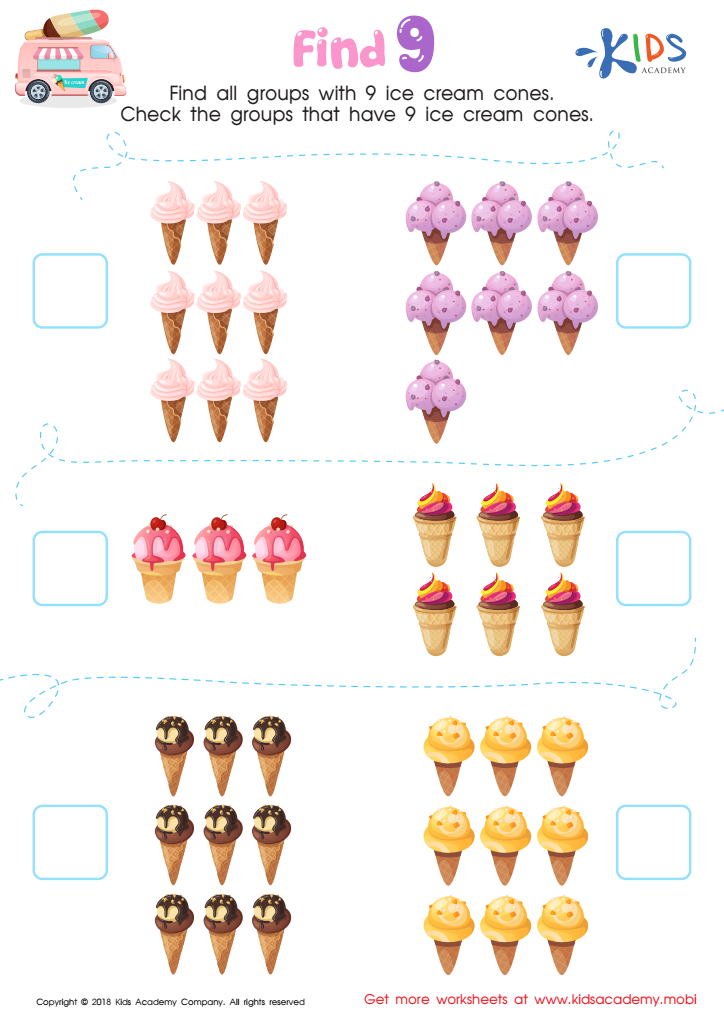

Find 9 Worksheet
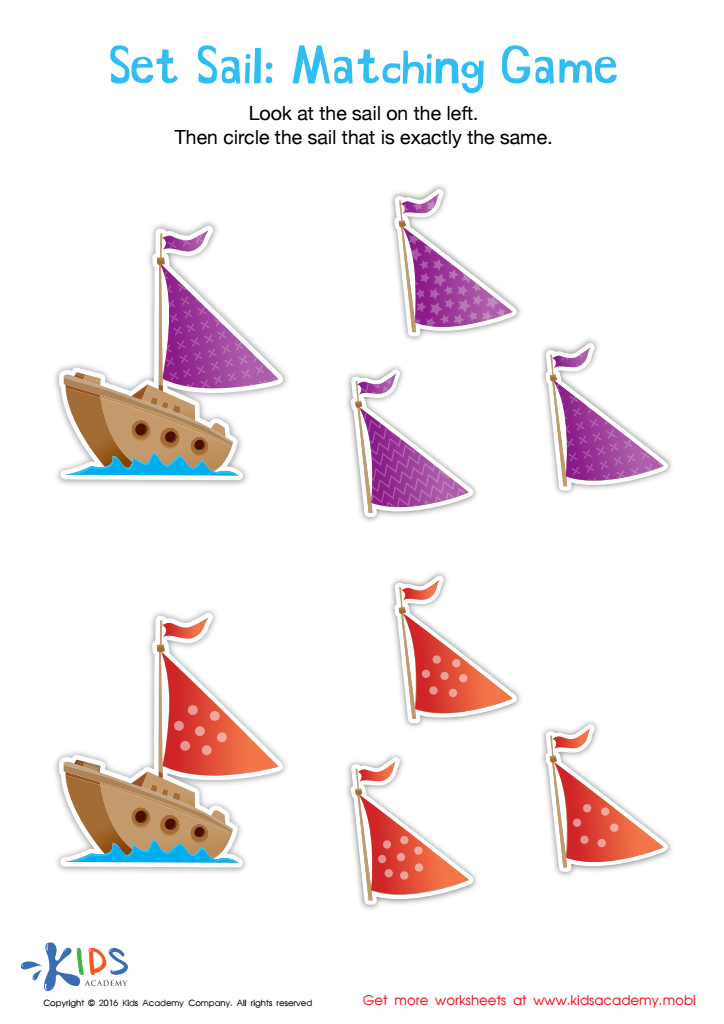

Set Sail Worksheet
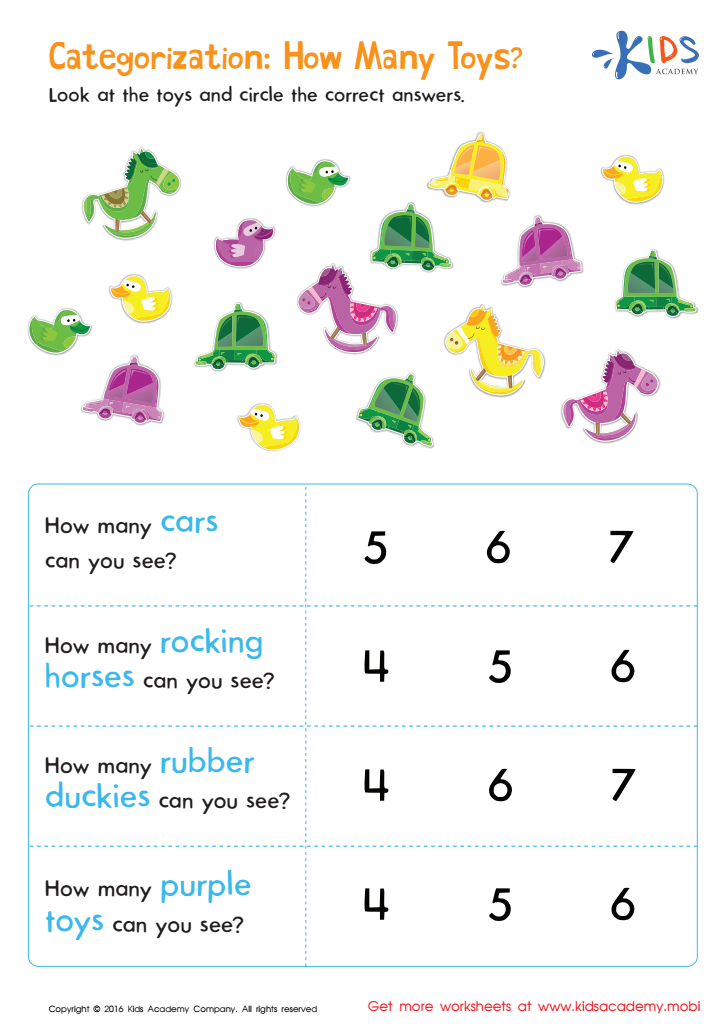

Classifying Toys by Type and Color Sorting Worksheet


Frog Countdown Worksheet
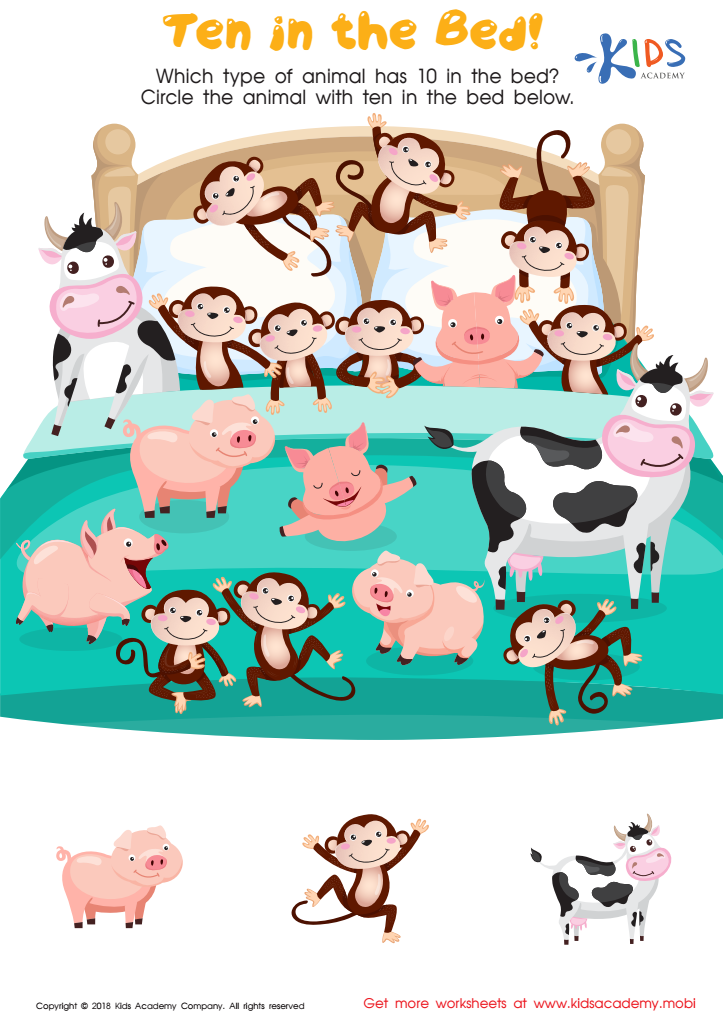

Ten in the Bed Worksheet
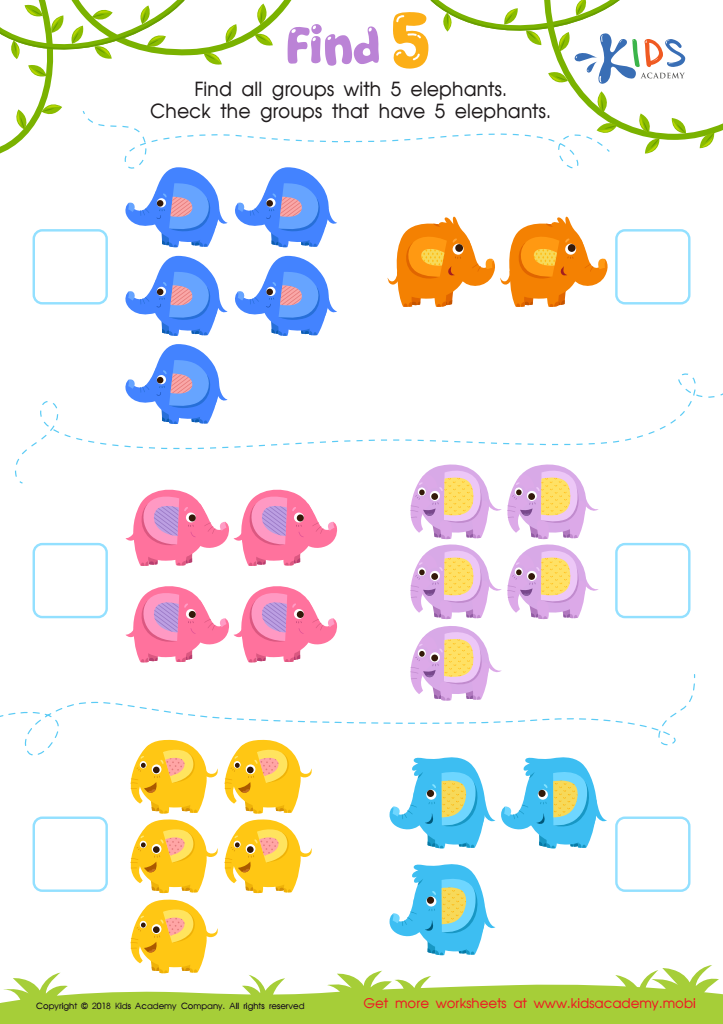

Find 5 Worksheet
Number recognition is a foundational skill for children aged 3-7, laying the groundwork for mathematics and cognitive development. Parents and teachers should prioritize number recognition because it significantly impacts a child's ability to understand and navigate the world around them. Recognizing numbers enhances skills such as counting, basic arithmetic, and eventually more complex math concepts.
Understanding numbers is essential for everyday activities, from simple tasks like telling time to more complex ones like managing money. Furthermore, early mastery of number recognition correlates with increased confidence and motivation in learning. Young learners who can recognize numbers often find math-related tasks less daunting, encouraging a positive attitude towards learning.
Additionally, engaging in number recognition activities fosters critical thinking and problem-solving skills. It aids in the development of logical reasoning, which benefits children academically and socially.
Lastly, early intervention can help identify potential learning difficulties, enabling educators and parents to provide the necessary support. In a world increasingly driven by data and technology, equipping children with strong number recognition can empower them in both their educational journey and future careers. Thus, nurturing these skills is vital for their holistic development.
 Assign to My Students
Assign to My Students















